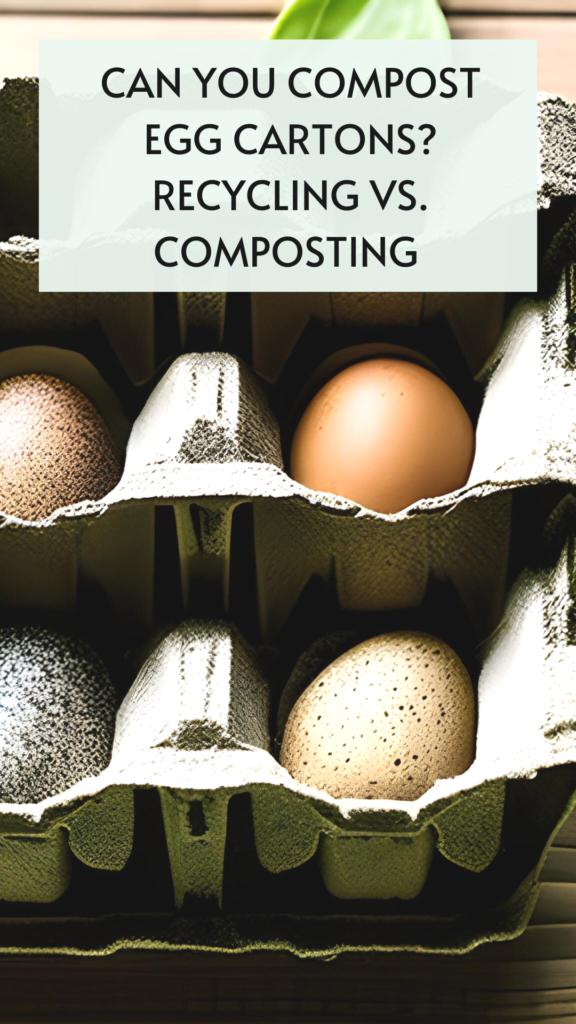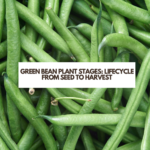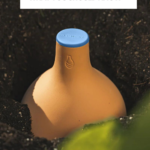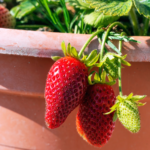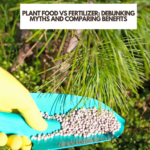Are you wondering if you can compost egg cartons? Composting is a fantastic way to reduce waste and create nutrient-rich soil for your garden. If you’re wondering whether you can compost egg cartons, you’re in luck!
In this blog post, we’ll explore the benefits of composting egg cartons, the best methods to do so, and how they can contribute to a more sustainable lifestyle.
FTC DISCLOSURE: Some of the links in this post are affiliate links. If you click on them and make a purchase, I will receive a small finder’s fee on the sale. This does not increase your price in any way shape or form. Using these links help support the continuation of this website. All opinions are my own. Thank you in advance.
Can you compost cardboard egg cartons?
Yes, you can compost most types of egg cartons. The majority of egg cartons are made from paper or cardboard, which are organic materials that break down easily during the composting process. Paper egg cartons cartons are considered “browns” in composting, meaning they are high in carbon. Plastic egg cartons can most likely added to your recycling bin. Styrofoam egg cartons are not compostable, and not biodegradable.
Why Compost Egg Cartons?
Egg cartons, typically made from paper or cardboard, are excellent candidates for composting. By composting them, you not only divert waste from the landfill but also transform them into valuable organic matter that enriches your soil. Composting egg cartons is a sustainable solution that aligns with the principles of recycling and reducing waste. And your compost is great for using the no-dig gardening method.
Preparing Egg Cartons for Composting:
Before composting your egg cartons, it’s important to prepare them properly. Follow these steps:
#1. Remove any plastic or foam inserts:
Some egg cartons come with plastic or foam inserts. These materials are not compostable and should be removed and disposed of separately.
#2. Tear or shred the cartons into small pieces:
To speed up the decomposition process of cardboard cartons, tear or shred the old egg cartons into smaller pieces. This will increase their surface area, allowing microbes to break them down more efficiently.
#3. Wet the cartons:
Egg cartons are considered “browns” in composting, meaning they are rich in carbon. However, they can be quite dry. Soaking the paper cartons in water for a few minutes before adding them to your compost pile or bin will help balance the moisture content.
Incorporating Egg Cartons into Your Compost:
Once your egg cartons are prepared, you can incorporate them into your compost pile or bin. I add mine into my SubPod compost garden bed with much success. I use it as one of my carbon materials. Here’s how:
#1. Create a compost layer:
Start by adding a layer of organic “greens” to your compost pile, such as fruit and vegetable food scraps, grass clippings, or coffee grounds. This provides a nitrogen-rich base for the composting process. Food waste and food residue used in the garden is a great way to add nutrients to your garden bed. You can also add egg shells to your compost heap.
#2. Add shredded egg cartons:
Spread a layer of shredded egg cartons on top of the “greens” layer. Aim for a ratio of approximately 3 parts brown materials (like the egg cartons) to 1 part green materials by volume. This principle can be used for almost any compost bin and will help achieve your compost or black gold.
#3. Maintain the right balance:
As you continue composting, remember to maintain the balance of carbon-rich materials (“browns”) and nitrogen-rich materials (“greens”). Turn or mix the compost regularly to ensure proper aeration and decomposition.
#4. Monitor moisture levels:
Keep an eye on the moisture content of your compost pile. It should be moist but not soggy. If it becomes too dry, sprinkle water over the pile. If it becomes too wet, add more “browns” like shredded egg cartons to help absorb excess moisture.
Benefits of Composting Egg Cartons:
Composting egg cartons offers several benefits:
#1. Nutrient-rich soil:
Egg cartons break down and contribute to the organic matter in your compost, enriching it with essential nutrients for your plants. It is one of the most sustainable options. People also use them as homemade seed starters too.
#2. Moisture retention:
The fibrous nature of egg cartons helps retain moisture in the compost, promoting a healthy environment for microbial activity and decomposition.
#3. Waste reduction:
By composting egg cartons, you divert them from the landfill, reducing waste and your ecological footprint. Composting egg cartons is an eco-friendly way to repurpose waste and create nutrient-rich soil while making a health compost pile. Using old cardboard egg cartons is a creative and easy access way to add a great source of carbon to your compost pile.
Using cardboard egg boxes and kitchen scraps can help create a great carbon-nitrogen compost mix. By following the proper preparation and incorporation methods, you can make a positive impact on the environment while reaping the benefits of compost in your garden. Start composting those egg cartons today and contribute to a more sustainable future while aiding an easy process to have an endless amount of nutrient-rich fertilizer.





